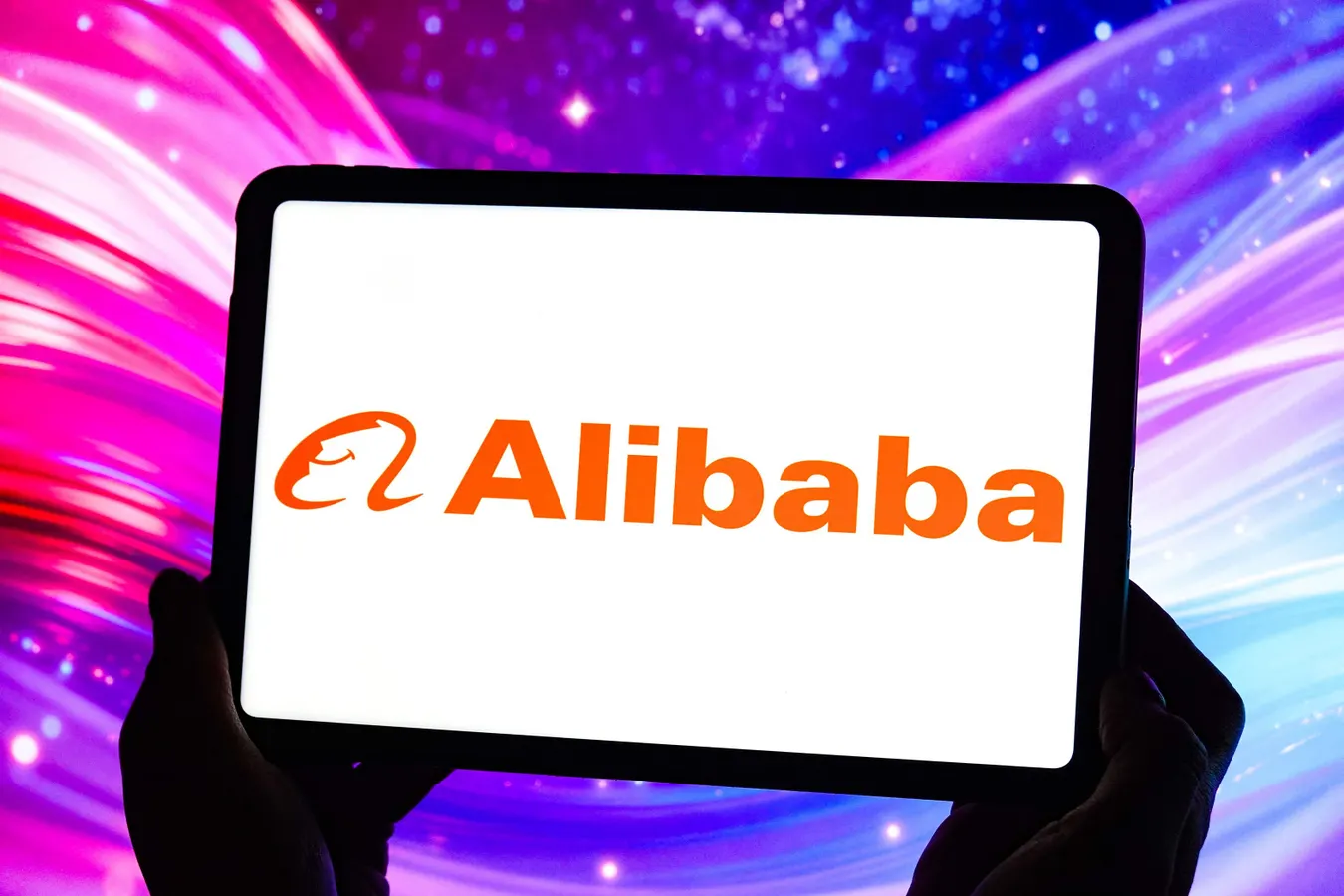By Contributor,Sheldon Cooper,Trefis Team
Copyright forbes

CHINA – 2025/09/21: In this photo illustration, the Alibaba logo is displayed on the screen of a tablet. (Photo Illustration by Sheldon Cooper/SOPA Images/LightRocket via Getty Images)
SOPA Images/LightRocket via Getty Images
Alibaba stock’s (NYSE:BABA) resurgence has been remarkably dramatic. After struggling for a significant part of the last few years due to regulatory pressures, sluggish consumption in China, and increased competition in e-commerce, the stock has experienced a spectacular rally this year. Shares have nearly doubled since January, with a further rise of 30% in September alone, making Alibaba one of the best-performing tech stocks of 2025. The reason behind this? A pivotal shift towards generative AI, where Alibaba’s advancements in cloud computing, chips, and large language models have not only rekindled investor confidence but also placed the company in closer competition with leading global AI firms. In the latest quarter, the cloud segment grew 26% year-on-year, while AI-driven revenues recorded triple-digit growth for eight consecutive quarters. However, with Alibaba’s stock already increasing 2x year-to-date, the pressing question is: can this AI-driven rally persist, or has much of the positive news already been factored into the stock price?
Developing State-of-the-Art Models
At its technology conference in September 2025, the company introduced Qwen3-Max, its cutting-edge large language model (LLM) with more than 1 trillion parameters. This model excels in complex reasoning, code generation, multi-step problem-solving, and autonomous agent functionalities. Its unique ability to process input sequences of up to 1 million tokens surpasses that of many global competitors. In terms of benchmarks, it has outperformed rivals in coding and reasoning tasks, placing Alibaba in a more competitive position against international AI giants such as OpenAI and Alphabet (NASDAQ:GOOG). Related The GOOGL Stock Shareholder Jackpot. The model is presently available through Alibaba Cloud’s API and chat services.
Chips and Infrastructure
Supporting these advancements is Alibaba’s rapidly expanding cloud sector. The division saw a 26% year-over-year growth last quarter, while AI-related revenues have exhibited triple-digit growth for eight consecutive quarters. This momentum underscores the significance of back-end infrastructure in scaling AI services. To further bolster its AI framework, Alibaba has reportedly created a new 7-nanometer AI inference chip, which is considerably more advanced than its previous Hanguang processor. This chip is engineered for real-time inferencing tasks, optimizing the generation of answers and recommendations. The introduction of this chip coincides with U.S. limitations on the export of advanced chips to China. Although certain conditional shipments have been allowed, uncertainty remains, and Beijing has advised companies against heavy reliance on U.S. chips. By developing its own processors, Alibaba minimizes dependence on foreign suppliers while responding to China’s increasing demand for domestic AI capabilities.
Partnerships and Investments
Beyond individual innovations, Alibaba is investing in a wider AI ecosystem. The company originally committed RMB 380 billion (around $53 billion) for AI infrastructure and development over three years, but CEO Eddie Wu has verified that Alibaba will surpass this investment in response to rising demand and substantial technological advancements. Concurrently, Alibaba is strengthening its partnerships. Its collaboration with Nvidia will integrate Nvidia’s cutting-edge AI development tools into Alibaba Cloud’s AI platform. This partnership aspires to accelerate advancements in “physical AI,” extending AI capabilities from computing into tangible applications like humanoid robots and self-driving vehicles.
However, amid all the excitement, Alibaba’s ascent has also rendered the stock significantly less of a bargain. Shares are now trading at nearly $180, or approximately 23x forward earnings – more than double the modest 10x multiple that investors paid just about a year ago. While AI revenues are skyrocketing, the overall growth outlook for the company appears less remarkable: consensus projections anticipate a mere 5% sales growth in 2025. In contrast, global counterparts like Alphabet are trading at slightly higher valuations (around 25x forward earnings) but are projected to grow revenue by over 13% this year. This disparity highlights that, while Alibaba’s AI initiatives have rekindled investor passion, maintaining the current momentum will ultimately depend on whether broader business growth can catch up with rising expectations.
MORE FOR YOU
The Trefis High Quality (HQ) Portfolio, featuring a selection of 30 stocks, has a history of significantly outperforming its benchmark, which includes all 3 – S&P 500, Russell, and S&P midcap — achieving returns exceeding 91% since its inception. What accounts for this? As a group, HQ Portfolio stocks delivered superior returns with less risk compared to the benchmark index; less of a roller-coaster experience, as shown in HQ Portfolio performance metrics.
Editorial StandardsReprints & Permissions